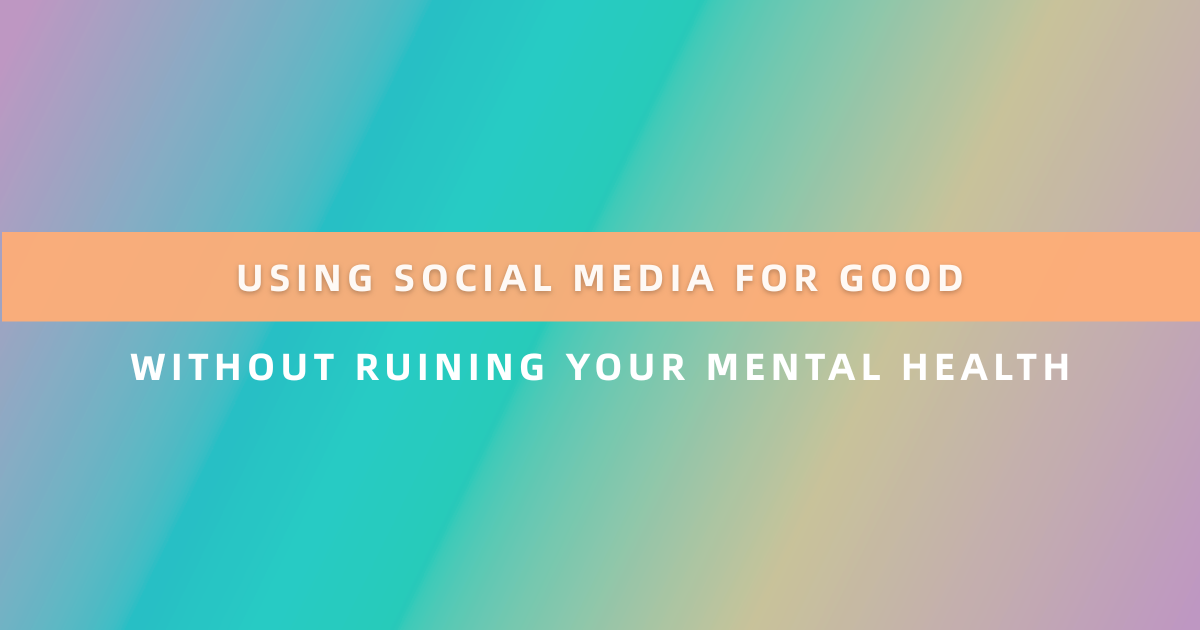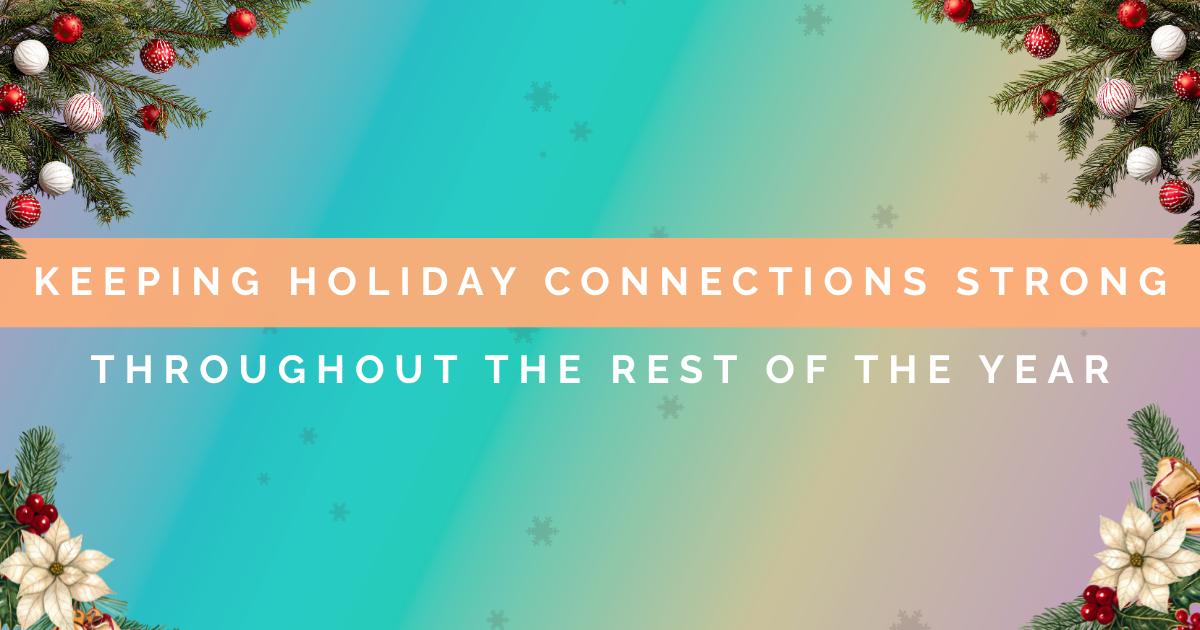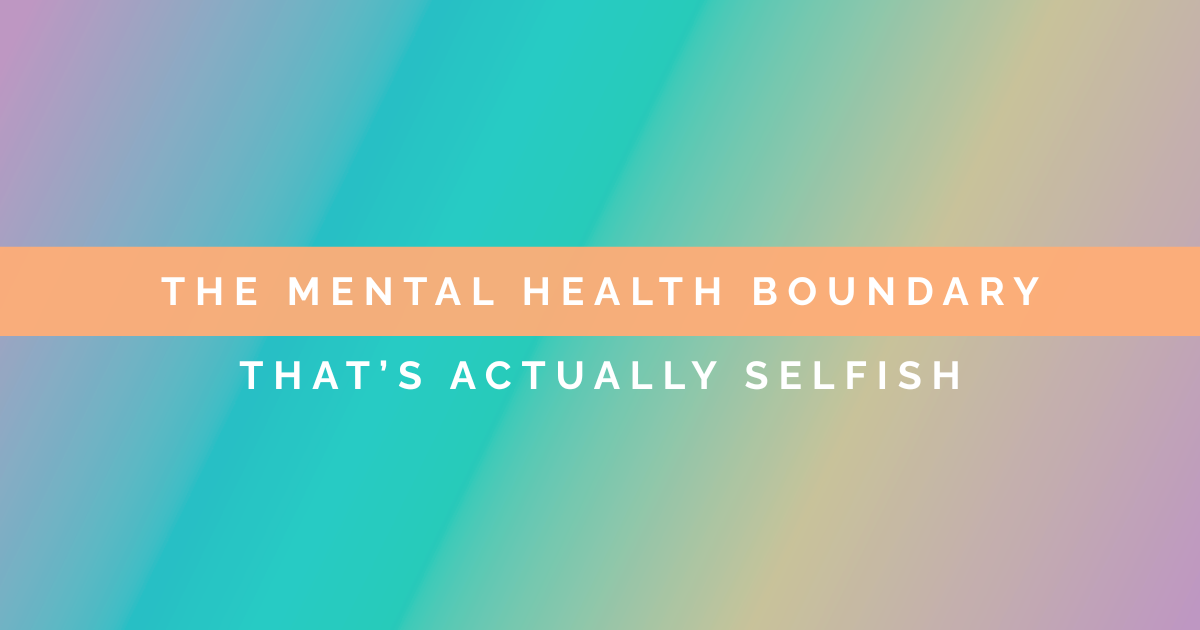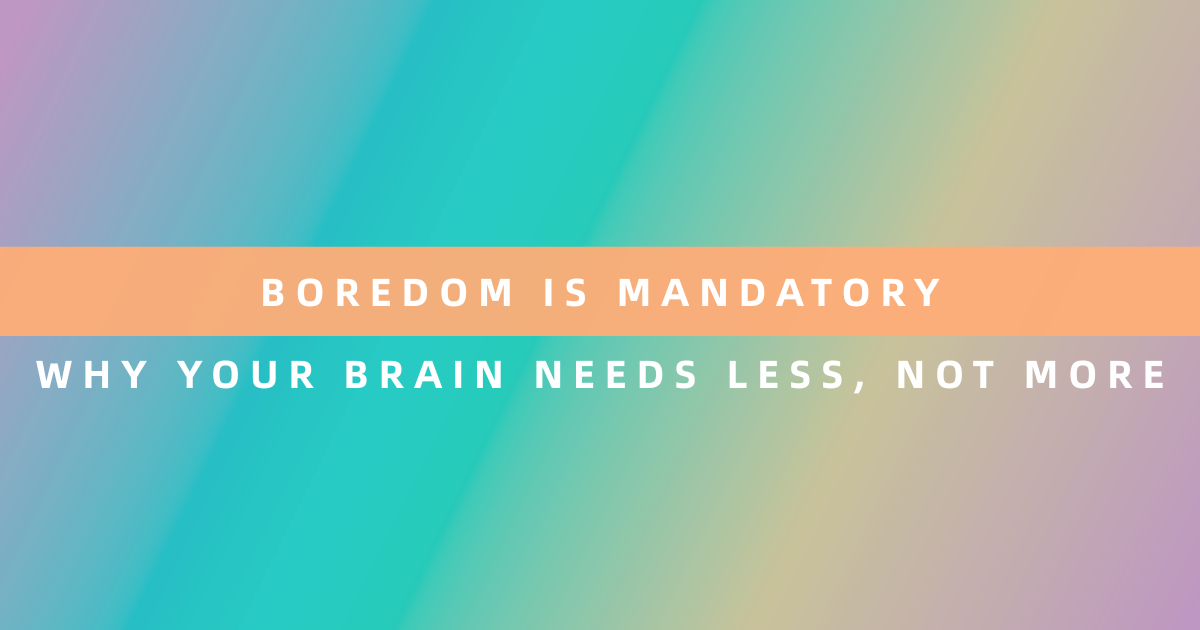Many people open their social media apps expecting to see updates from friends and family, only to find themselves confronted with an endless stream of crises, injustices, and urgent calls for help. Every scroll reveals another petition to sign, another fundraiser to support, another cause that desperately needs attention and action.
This constant exposure to problems transforms what should be a brief social check-in into an overwhelming parade of moral obligations. You feel pressure to share every important post, donate to every worthy cause, and respond to every injustice with immediate action. The weight of feeling responsible for addressing every problem you encounter creates a persistent anxiety that follows you throughout your day.
Social media platforms amplify this pressure by design. Their algorithms prioritize content that generates strong emotional responses, meaning you see more crisis posts, more urgent appeals, and more emotionally charged content than positive or neutral updates. This creates an artificial sense that the world consists entirely of emergencies requiring your immediate attention.
The result often feels like drinking from a fire hose of human suffering and social problems. Your desire to help others becomes a source of chronic stress as you struggle to respond adequately to the overwhelming volume of needs presented to you every time you check your phone.
Yet social media also offers genuine opportunities to support causes you care about, connect with like-minded people, and amplify important messages. The challenge lies in finding ways to engage meaningfully with social issues online while protecting your mental health and maintaining your ability to create positive change over the long term.
Why Social Media Activism Can Damage Your Mental Health
Social media activism creates unique psychological challenges that traditional forms of helping and community engagement do not present. The constant exposure to injustice and suffering through your feeds can trigger what researchers call “vicarious trauma” or secondary trauma, where you experience stress symptoms from witnessing others’ pain.
Information overload represents one of the primary mental health risks of social media engagement. Your brain receives more information about global problems in a single day than previous generations encountered in months. This overwhelming volume of distressing information can trigger anxiety, depression, and a persistent sense of helplessness about the state of the world.
Emotional contagion occurs when you absorb the emotions expressed in social media posts, particularly negative emotions like anger, fear, and despair. Research shows that people unconsciously mirror the emotional states they observe, meaning that scrolling through feeds filled with outrage and crisis can change your emotional state and mood.
Performative pressure emerges from the public nature of social media engagement. You may feel compelled to post about every important issue to demonstrate your awareness and values, even when you lack the emotional capacity to engage meaningfully. This pressure to perform activism can create anxiety about saying the wrong thing or not doing enough.
Decision fatigue develops from the constant stream of choices about which posts to share, which causes to support, and which actions to take. Every piece of content presents a decision point about whether and how to respond, creating mental exhaustion that can impair your ability to make good choices in other areas of life.
Comparison and inadequacy arise when you compare your contributions to those of others who seem to be doing more, giving more, or caring more about important issues. Social media’s highlight reel effect makes it appear that everyone else is more engaged and effective than you are, leading to feelings of inadequacy and self-criticism.
The dopamine cycle of social media engagement can also create addictive patterns around activism. The immediate feedback from likes, shares, and comments on posts about social issues can create a dependency on these validation signals, making it difficult to step back from constant engagement even when it becomes harmful to your well-being.
How to Set Healthy Boundaries with Social Media Consumption
Establishing clear boundaries around social media use protects your mental health while allowing you to maintain meaningful engagement with causes you care about. These boundaries require conscious planning and consistent implementation, especially during times of heightened social or political tension.
Time boundaries provide the foundation for healthy social media engagement. Set specific times when you check social media rather than scrolling throughout the day. Many people find success with checking feeds once in the morning and once in the evening, avoiding social media during work hours or before bedtime.
Content boundaries involve actively curating your feeds to include a healthy balance of content types. Unfollow accounts that consistently post distressing content without solutions or constructive perspectives. Follow accounts that share positive news, solution-oriented content, and resources for taking meaningful action.
Emotional boundaries require learning to observe your emotional responses to social media content without immediately acting on every feeling. Practice noticing when posts trigger strong emotional reactions and pausing before deciding whether to engage, share, or respond.
Response boundaries protect you from feeling obligated to engage with every piece of content that appears in your feed. You do not need to share every important post, comment on every injustice, or respond to every call for action. Choose your engagements deliberately based on your capacity and genuine interest rather than social pressure.
Geographic boundaries can help reduce overwhelm by focusing your attention on issues you can influence. Consider limiting your consumption of news and activist content to your local area, state, or country, where your voice and actions can have a more direct impact.
Notification boundaries prevent social media from interrupting your daily activities with urgent updates. Turn off notifications for social media apps, or limit notifications to direct messages from people you know personally. This allows you to engage with content on your schedule rather than responding to constant interruptions.
Fact-checking boundaries protect you from the emotional manipulation that can occur when false or misleading information spreads through social media. Develop habits of verifying information before sharing it, and avoid engaging with content that seems designed primarily to provoke outrage rather than inform or inspire action.
What Types of Social Media Engagement Help Causes
Not all social media engagement creates equal impact for the causes you support. Understanding which types of online actions translate into real-world change helps you focus your energy on activities that make a difference rather than just making you feel temporarily better about complex problems.
Amplifying marginalized voices represents one of the most effective ways to use social media for positive change. Share content created by people directly affected by the issues you care about, rather than creating your commentary on their experiences. This approach centers the voices of those most impacted while expanding the reach of their messages.
Sharing actionable information provides more value than sharing emotional appeals or general awareness posts. Look for content that tells people specifically what they can do to help, such as volunteer opportunities, donation links, contact information for elected officials, or local events related to causes you support.
Building community connections can create a lasting impact by connecting people who share similar values and interests. Use social media to facilitate real-world meetups, volunteer opportunities, or collaborative projects that bring people together around shared causes.
Fundraising with transparency can effectively support causes when done thoughtfully. Share fundraising campaigns with clear information about how donations will be used, and consider organizing group fundraising efforts that pool resources for greater impact.
Educational content sharing helps spread accurate information about complex issues. Share articles, research, and resources from credible sources that help people understand problems and solutions more deeply, rather than just react emotionally to headlines.
Local action promotion uses social media’s reach to support activities in your physical community. Share information about local volunteer opportunities, community meetings, elections, and events that people can attend in person.
Story sharing with consent can humanize abstract issues by sharing personal stories, but only when you have explicit permission from the people whose stories you’re sharing. Avoid sharing trauma narratives or personal struggles without clear consent from those involved.
Solutions-focused content provides more value than problem-focused content. Share stories of successful initiatives, innovative approaches to social problems, and examples of positive change to inspire hope and action rather than just highlighting what’s wrong.
How to Support Others Online Without Absorbing Their Pain
Supporting others through social media requires developing emotional skills that allow you to offer genuine care without taking on the emotional burdens of everyone you encounter online. This balance protects your mental health while still allowing you to provide meaningful support to your network.
Empathetic responding involves acknowledging others’ experiences without trying to fix their problems or absorb their emotions. Use phrases like “I hear you” or “That sounds difficult” rather than trying to solve their problems or minimize their pain with advice or positive reframing.
Resource sharing provides practical support without emotional entanglement. When people share struggles or ask for help, respond with useful resources, contact information, or connections to appropriate services rather than trying to provide emotional support that you’re not equipped to give.
Boundary language helps you support others while protecting your emotional capacity. It’s acceptable to say things like “I care about you and I’m not in a position to provide support right now” or “I hope you find the help you need” when you don’t have the emotional energy to engage fully.
Referral to professionals represents appropriate support when people share serious mental health struggles or traumatic experiences. Encourage people to seek professional help rather than trying to provide counseling or crisis intervention through social media platforms.
Validation without absorption allows you to acknowledge others’ experiences without making their emotions your own. Practice observing others’ pain with compassion while maintaining awareness of your emotional state and needs.
Time-limited engagement protects you from becoming overwhelmed by ongoing involvement in others’ crises. Set boundaries around how much time you spend supporting others online, and step back when your support needs become ongoing or intensive.
Community support facilitation involves connecting people who are struggling with others who can help, rather than trying to be the sole source of support. Help build networks of mutual aid and support rather than positioning yourself as the primary helper.
When to Step Back from Social Media Activism
Recognizing when your social media engagement is harming your mental health requires honest self-assessment and willingness to prioritize your wellbeing over social expectations or personal guilt about stepping back from online activism.
Physical symptoms often signal that social media consumption is affecting your health. If you experience headaches, sleep problems, muscle tension, or changes in appetite related to social media use, these represent clear indicators that you need to reduce your engagement.
Emotional overwhelm manifests as persistent anxiety, anger, or despair that continues even when you’re not actively using social media. When your emotional state becomes chronically affected by what you see online, stepping back becomes necessary for your mental health.
Relationship impacts occur when your social media engagement affects your ability to be present with family, friends, or coworkers. If you find yourself constantly distracted by social media or bringing online conflicts into your real-world relationships, it’s time to reassess your engagement.
Decreased effectiveness happens when you’re so overwhelmed by online activism that you can’t focus on other important activities or goals. If social media engagement is interfering with your work, relationships, or other responsibilities, you need to establish better boundaries.
Compulsive behavior develops when you feel unable to stop checking social media, even when it makes you feel worse. If you find yourself scrolling compulsively or feeling anxious when you can’t access social media, consider taking a break to reset your relationship with these platforms.
Cynicism and hopelessness about the possibility of positive change often result from too much exposure to negative content. If you find yourself feeling hopeless about social issues or cynical about the possibility of making a difference, stepping back can help restore your sense of agency and hope.
Guilt and shame about not doing enough or not being good enough can indicate that social media engagement is becoming psychologically harmful. If you feel constant guilt about your level of activism or shame about your contributions, taking a break can help you develop a healthier perspective.
How to Create Real Impact Beyond Likes and Shares
The most effective social media engagement connects online activities to real-world actions that create tangible change for the causes you care about. This connection transforms social media from a source of anxiety into a tool for meaningful impact.
Local action coordination uses social media to organize real-world activities in your community. Create or join local groups that plan volunteer activities, attend community meetings, or work on local policy issues. Use online platforms to coordinate offline action rather than as a substitute for it.
Skill sharing and education leverage social media to teach others valuable skills or share knowledge that helps them take action. Create content that helps people develop abilities they need to contribute to causes they care about, such as organizing skills, communication strategies, or technical knowledge.
Fundraising with follow-through involves not just sharing fundraising campaigns but also tracking their progress and sharing updates about how donations are used. This approach builds trust and demonstrates the real-world impact of online giving.
Volunteer recruitment uses social media to find and organize people interested in hands-on volunteer work. Create events, share opportunities, and facilitate connections between people who want to help and organizations that need support.
Policy advocacy translates online engagement into concrete political action. Use social media to share information about specific legislation, organize letter-writing campaigns, or coordinate attendance at town halls and public meetings.
Small business and organization support creates economic impact by promoting businesses and organizations that align with your values. Share information about social enterprises, minority owned businesses, or organizations doing good work in your community.
Mentorship and guidance provide long-term support to people who want to get involved in causes you care about. Use social media to connect with people who are new to activism or volunteering and offer guidance based on your experience.
Documentation and storytelling preserve and share stories of positive change that might otherwise go unnoticed. Document volunteer activities, community improvements, or successful initiatives to inspire others and demonstrate that positive change is possible.
Your Path to Sustainable Social Media Engagement
Creating a sustainable approach to social media engagement for social good requires planning, regular assessment, and a willingness to adjust your approach based on your changing needs and circumstances. The goal is to develop a relationship with social media that supports your values while protecting your mental health.
Start by conducting an honest assessment of your current social media habits and their impact on your well-being. Notice when you feel energized versus drained by online engagement, which types of content trigger strong emotional responses, and how much time you spend on social media each day.
Develop a personal social media policy that outlines your boundaries and intentions for online engagement. This policy might include specific times when you check social media, types of content you will and won’t share, and criteria for deciding whether to engage with particular posts or conversations.
Create a curated feed that supports your mental health while keeping you informed about issues you care about. This might involve unfollowing accounts that consistently post distressing content, following accounts that share solutions and positive news, and using platform features to limit exposure to certain types of content.
Establish regular digital detox periods when you step away from social media entirely. This might involve taking one day per week offline, avoiding social media during certain hours of the day, or taking longer breaks during particularly stressful periods.
Connect your online engagement to offline actions by identifying specific ways you can support causes you care about through real-world activities. This connection transforms social media from a source of guilt and anxiety into a tool for organizing and amplifying your actual impact.
Ready to develop a healthier relationship with social media while still supporting causes you care about? Explore Theryo’s AI-enhanced journaling tools that help you process your emotions around social media use, track patterns in your online engagement, and maintain the emotional balance needed for sustainable activism. Your mental health and your desire to help others both deserve support and protection.
Frequently Asked Questions
1. How much time should I spend on social media for activism without it affecting my mental health? Most mental health experts recommend limiting social media use to 30-60 minutes per day total, with even less time focused on activism-related content. Start with checking social media twice daily for 15-20 minutes each time, and adjust based on how it affects your mood and anxiety levels.
2. What should I do when I see disturbing content about social issues that I can’t stop thinking about? Practice grounding techniques like deep breathing or focusing on your immediate environment. Limit your exposure to graphic or traumatic content by unfollowing accounts that consistently share disturbing material. Consider talking to a mental health professional if intrusive thoughts about social media content persist.
3. How do I know if my social media sharing is actually helping or just making me feel better? Effective social media activism includes specific actionable information, amplifies marginalized voices, or connects to real-world activities. If your posts primarily express your own emotions or share general awareness content without clear action steps, they may not be creating a meaningful impact for the causes you support.
4. What if I feel guilty about not sharing every important post or cause I see? Guilt about selective engagement is normal but unproductive. You cannot meaningfully support every cause, and attempting to do so dilutes your impact. Choose 2-3 issues to focus on consistently rather than trying to engage with everything that appears in your feed.
5. How can I support friends who share personal struggles on social media without getting emotionally overwhelmed? Offer specific, practical support like sharing resources or making connections to appropriate services. Avoid trying to provide ongoing emotional support through social media platforms. It’s okay to acknowledge someone’s pain without taking responsibility for fixing their problems.
6. What should I do when social media activism feels performative or fake? Focus on connecting your online engagement to real-world actions like volunteering, donating, or attending events. If sharing feels performative, consider whether you’re posting to demonstrate your values or to help causes. Authentic engagement prioritizes impact over image.
7. How do I handle disagreements about social issues in my social media feeds? Set boundaries around online debates by deciding in advance which conversations are worth your time and energy. Focus on sharing information rather than trying to convince people who are hostile to your viewpoints. Consider having important conversations in person or through private messages rather than public posts.
8. What if social media is my main source of news and information about social issues? Diversify your information sources by following credible news organizations, reading original research, and seeking out local news sources. Social media algorithms can create filter bubbles that limit your exposure to diverse perspectives and comprehensive information about complex issues.
9. How can I tell if my social media use is becoming compulsive or addictive? Warning signs include feeling anxious when you can’t check social media, scrolling for longer periods than intended, checking your phone immediately upon waking or before sleeping, and feeling unable to stop checking social media even when it makes you feel worse.
10. What if I want to stay informed about social issues but can’t handle the emotional impact? Consider getting news from sources that focus on solutions and positive developments rather than just problems. Limit your news consumption to specific times of day, and balance distressing news with positive content. You can care about issues without consuming every piece of information about them.
11. How do I balance staying informed about injustices with protecting my mental health? Set specific boundaries around news consumption, such as checking updates once daily rather than constantly throughout the day. Choose one or two reliable news sources rather than consuming information from multiple social media accounts. Focus on local issues where you can take direct action.
12. What should I do if my social media activism is affecting my relationships with family or friends? Assess whether your online engagement is interfering with your ability to be present in your relationships. Consider having important conversations about values and social issues in person rather than through social media. Be willing to adjust your online behavior if it’s damaging important relationships.







